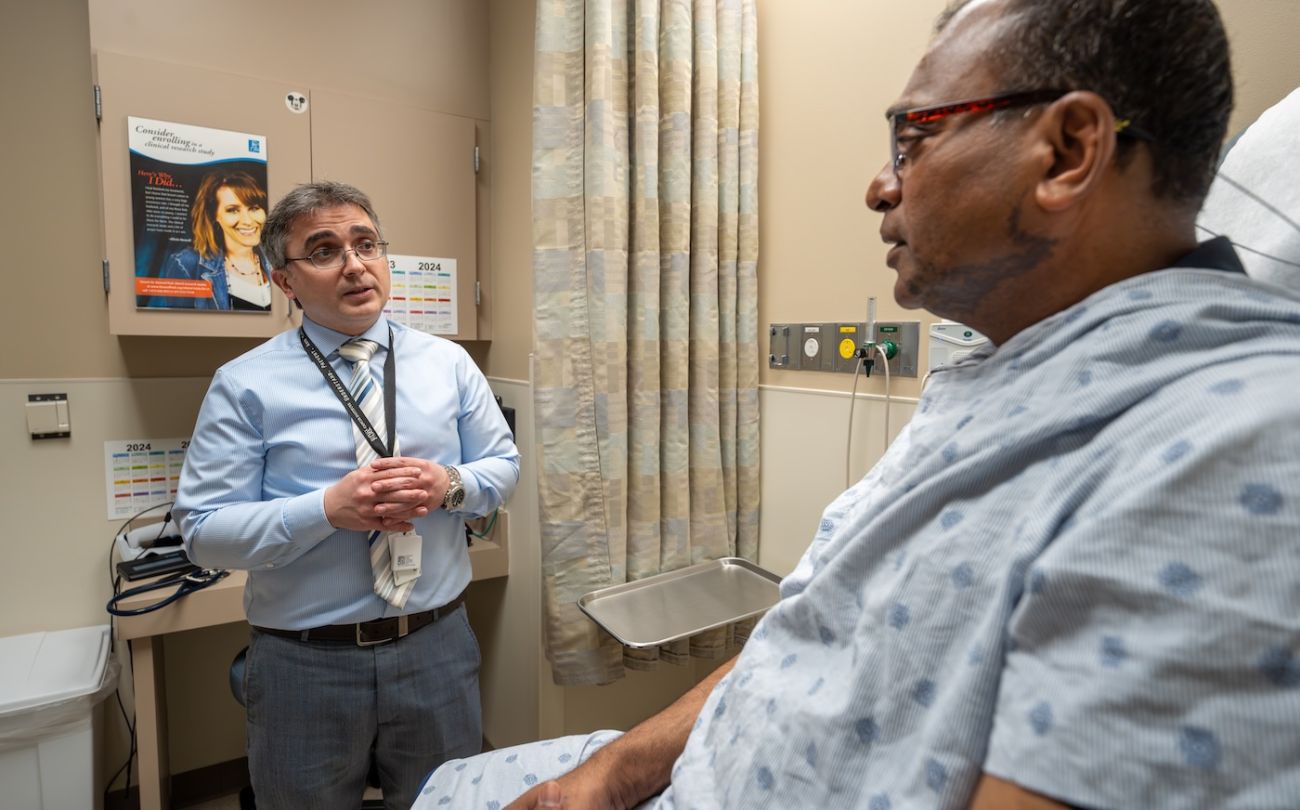What causes pancreatic cancer?
While pancreatic cancer is more common in men than in woman, and more common among African Americans than other population groups, an exact cause of the cancer remains unclear. Several factors, however, are known to increase your risk for developing the disease. These include:
- A family history of pancreatic cancer
- Smoking
- Heavy alcohol use
- Eating a high-fat, low fiber diet
- Obesity
- Working in a job that involves industrial chemicals, pesticides, asbestos or toxic metals
- Diabetes
- Chronic pancreatitis
Is pancreatic cancer hereditary?
Sometimes. While most cancers, including pancreatic cancers, are sporadic and occur by chance, pancreatic cancer is associated with certain gene mutations that can be passed on from generation to generation.
Any diagnosis of pancreatic cancer in your family history — especially in a first-degree relative (parent, sibling or child) or in someone younger than age 50 — suggests that your family may carry a hereditary cancer gene mutation and you may benefit from genetic screening. Having such a gene mutation does NOT mean that you will develop pancreatic cancer, but that you do face increased risk and should undergo appropriate and timely screenings.
Genetic testing
Concerned about your cancer risk due to your personal or family history? A genetic consultation can give you the answers you need. We offer expert guidance and monitoring, preventive options and a unique opportunity to take charge of your health.
Am I at high risk?
The most important indication of a high risk for pancreatic cancer is a strong family history of the disease or a known gene mutation. Roswell Park’s Pancreatic Cancer Screening Program focuses on people at highest risk, due to one or more of these factors:
- Two or more first-degree relatives with a diagnosis of pancreatic cancer
- Three or more blood relatives (with at least one first-degree relative affected) with a diagnosis of pancreatic cancer
- A diagnosis of Peutz-Jeghers syndrome
- A known BRCA2 mutation plus two family members (or one first-degree relative) with pancreatic cancer
- A diagnosis of a genetic syndrome or mutation that increases risk for pancreatic cancer, ie: Familial Atypical Multiple Mole Melanoma (FAMMM-CDKN2A) syndrome, Lynch syndrome, P16 (ATM) or PALB2, and a first-degree relative with pancreatic cancer
High-Risk Pancreatic Cancer Screening Check your eligibility
Screening for pancreatic cancer
Pancreatic cancer is difficult to detect at early stages because no one test can reliably screen for it. Roswell Park experts will assess your risk and develop a personalized screening plan for you that may include:
- Blood tests, including a metabolic panel and tests to measure your levels of certain antigens and other biomarkers
- Endoscopic ultrasound and/or MRI every six months
- Genetic screening
- Periodic evaluation

